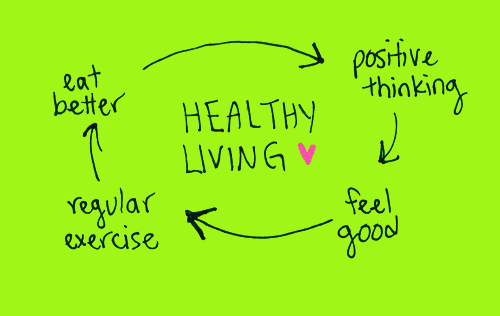By: John Poehler
Bipolar Disorder is a chronic illness of extreme moods, energy, and motivation. It is a complex disease that requires multiple coping strategies per day. The diagnostic criteria is the same for everyone. However, each individual is unique in their biology and symptomology. Therefore, the following coping strategies are recommendations based on my journey with having Bipolar Type 1.
Without further ado, here are the 7 simple strategies I use to maintain stability while having Bipolar Disorder:
1. Take Your Medication
The medical model consists of both medication and therapy. Medication is the foundation of an overall treatment plan. It is important to always follow your doctor’s instructions. Do not ever change dosages without contacting your doctor first. When taking your medication, try to take it close to the same time each day. Bipolar disorder is very inconsistent and can be highly unpredictable. The more you can provide consistency, the better off you will be.
2. Maintain a Consistent Sleep/Wake Schedule
Going to bed at the same time each night and getting up each morning on the same schedule is imperative to your sleep hygiene. You should plan on at least 7-8 hours of total sleep each night. This number can be different between individuals. It is important not to sleep too much or too little. You can inadvertently trigger an episode.
3. Daily Gratitude
Do not take this suggestion lightly. Right after you wake up, take a few minutes to list off all the things you are grateful for. Better yet, get a journal and record your daily gratitude inventory. Do this right before you go bed each night as well. Not only will this simple action set the right intention for your day or before you go to sleep, but you will have a journal (or head full) of things you are grateful for.
4. Drink at least 8 Glasses of Water
This is a practical suggestion for anyone. You need to keep hydrated during the day to keep yourself feeling refreshed and invigorated. Once you are dehydrated even a little bit, you can become tired and sleepy, have dry mouth, and a host of other symptoms. It is imperative to drink more water if you are taking medications for bipolar disorder. Many of these medications can become toxic in your system if you are not properly hydrated. Hydrating your body flushes out all the toxins and helps to support the natural functioning of your organs. Put this simple recommendation into practice and you will feel so much better.
5. Workout for a Minimum of 20 Minutes
We all know working out has a number of positive benefits. It has been shown that even 20 minutes of exercise can help your overall wellbeing. The advantages of working out include heightened energy level, easier time sleeping, boost in mood, reduction in blood pressure and heart rate, increased self-confidence and improvement in memory. Exercise is not only advantageous to your mind and body, but it is one of the most underutilized coping skills. Talk with your doctor before starting any workout program.
6. Eat 3 Healthy Meals and 2 Snacks
The idea of consistency relates to your eating habits as well. Try spacing out your meals and snacks throughout the day. This will help to smooth out your sugar levels. If your sugar levels spike or dip, your mood can be affected in a negative way. Schedule your meals and snacks throughout the day and see what you notice.
7. Meditate
This is another way to set a positive intention for the day. It gets you in the right mindset. Meditation is an easily accessible practice in today’s world. There are meditation apps to use and you can simply google meditation and the length of time you would like to meditate. For example, google “meditation 5 minutes”. A number of videos will appear with music and guided meditation for a 5 minute period. It just depends on what you prefer.
There are so many coping skills out there to try. These are 7 simple ways that I use to maintain stability. They are tried and true specifically for myself. You should try these coping skills and see how you react.
Remember to always follow your doctor’s instructions. That is so important.
Consistency fosters a healthy daily routine. Your daily routine should consist of coping skills to help support your stability. Finding coping strategies that help maintain stability is absolutely imperative to your overall wellness and treatment plan. If you are not doing this right now, try it to create stability with your illness.


